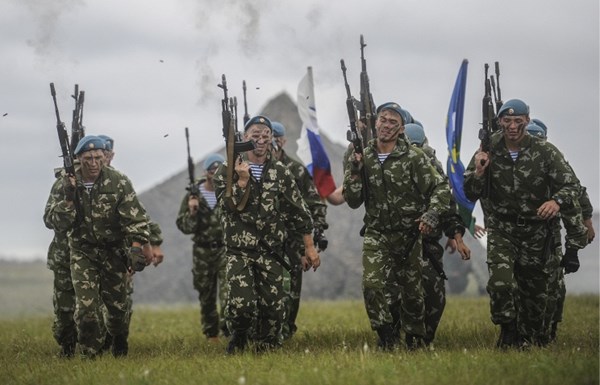Ukraine dismisses imminent Russian offensive claims
Fedir Venislavsky, head of Ukraine’s National Security and Defense Committee, dismissed claims of an imminent Russian offensive as mere "wishful thinking."
Meanwhile, the Institute for the Study of War (ISW) has reported that Russia has amassed substantial forces along a specific frontline segment, indicative of potential aggressive maneuvers. Venislavsky shared his perspectives on Russia’s alleged offensive intentions during an interview on Novyny. Live.
When asked about the potential for Russian advances along a thousand-kilometer front over the next six to nine months, Venislavsky expressed skepticism. He believes the adversary lacks the capability for such a large-scale offensive, emphasizing that since 2022, Russia has neither achieved strategic nor "even operational results." Venislavsky further suggested that these assertions of a forthcoming offensive are largely aimed at Ukraine's partners, to extract concessions from them.
“They are wishful thoughts and plans, which they are attempting to instill in European partners to pressure them into making concessions, including those persistently vocalized by Russia,” Venislavsky remarked.
On April 1, the Institute for the Study of War published a report detailing the current dynamics of the Russia-Ukraine conflict. Drawing from reports by Ukraine’s General Staff, Russia’s Ministry of Defense, and information from military bloggers and correspondents, the document indicates Russia is preparing to capture two pivotal locations in Ukraine—Borova and Lyman.
The Russian command aims to complete the occupation of the Luhansk region. To achieve this, Russian forces have concentrated significantly superior numbers in specific zones—at a ratio of 10 to 1, according to ISW. The report also notes that Russia is deploying well-trained contract soldiers. Russian troops are expanding their bridgehead northeast of Lyman, as part of an effort to create conditions favorable for the seizure of Borova and Lyman in the coming months, as outlined by ISW analysts.
However, on April 2, Andriy Kovalenko, head of the National Security Council's Center for Counteracting Disinformation, made a statement that contradicts that of the Ukrainian lawmaker. Kovalenko reported on his Telegram channel that Russians are set to launch an offensive in May 2025.
In an additional development on April 2, Vladimir Fokin, an officer of the 3rd Separate Assault Brigade, shared insights on the scheduled Russian offensive expected as early as April 2025. He indicated that in the area defended by his unit, the Russians have ammassed two to three divisions. Russian command continues to drill reserves, training them in offensive operations, Fokin reported.
On March 27, Ukrainian President Volodymyr Zelensky acknowledged the readiness of Russian forces for renewed activity along the front line. According to Zelensky, potential enemy attacks might target Sumy and Kharkiv regions.
Furthermore, an AP report dated March 29 highlighted Kremlin's intentions to advance across the entire thousand-kilometer front in Ukraine.
